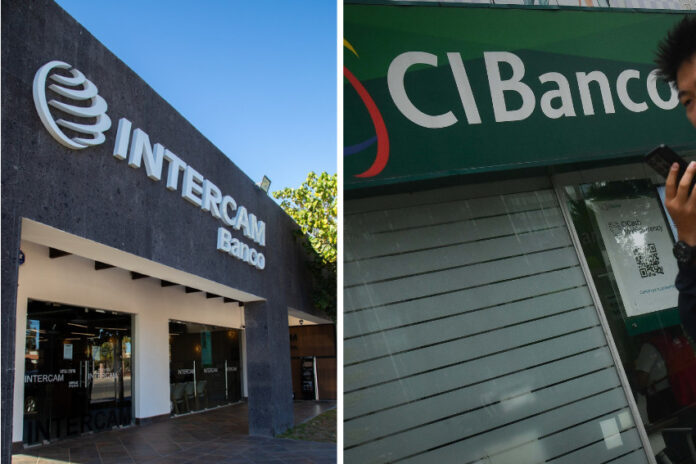The United States Department of the Treasury has accused two Mexican banks and a Mexican brokerage firm of laundering millions of dollars for drug cartels involved in the trafficking of fentanyl and other narcotics to the U.S.
The Treasury Department’s Financial Crimes Enforcement Network (FinCEN) outlined the accusations in orders that also prohibited certain transactions between U.S. banks and the three Mexican financial institutions, namely CIBanco, Intercam and Vector Casa de Bolsa.

“Financial facilitators like CIBanco, Intercam, and Vector are enabling the poisoning of countless Americans by moving money on behalf of cartels, making them vital cogs in the fentanyl supply chain,” Treasury Secretary Scott Bessent said on Wednesday.
The accusations against the three Mexican financial institutions and the prohibition on certain transactions involving them represent the United States government’s latest salvo in its fight against Mexican cartels and the trafficking of narcotics to the U.S.
The Trump administration has already designated six Mexican cartels as foreign terrorist organizations, beefed up security at the southern border with Mexico and conducted covert drone missions over Mexican territory to spy on drug cartels and hunt for fentanyl labs.
U.S. authorities frequently impose sanctions on alleged members of Mexican cartels and Mexican businesses accused of criminal activities, but “measures against financial institutions are far less common,” according to Reuters.
The accusations against CIBanco, Intercam and Vector
The Treasury Department said in a statement on Wednesday that FinCEN had issued orders identifying CIBanco, Intercam and Vector “as being of primary money laundering concern in connection with illicit opioid trafficking.”
Treasury said that the orders also prohibit “certain transmittals of funds involving” the three financial institutions.
“These orders are the first actions by FinCEN pursuant to the Fentanyl Sanctions Act and the FEND Off Fentanyl Act, which provide Treasury with additional authorities to target money laundering associated with the trafficking of fentanyl and other synthetic opioids, including by cartels,” the statement said.
“CIBanco and Intercam, commercial banks with over [US] $7 and $4 billion in total assets, respectively, and Vector, a brokerage firm managing nearly $11 billion in assets, have collectively played a longstanding and vital role in laundering millions of dollars on behalf of Mexico-based cartels and facilitating payments for the procurement of precursor chemicals needed to produce fentanyl,” Treasury said.
CIBanco
Treasury said that FinCEN determined that CIBanco, a Mexico City-based bank with branches across Mexico, is “of primary money laundering concern in connection with illicit opioid trafficking based on its long-standing pattern of associations, transactions, and provision of financial services that facilitate illicit opioid trafficking by Mexico-based cartels.”
Those cartels include the Beltran-Leyva Cartel, the Jalisco New Generation Cartel (CJNG) and the Gulf Cartel, Treasury said.
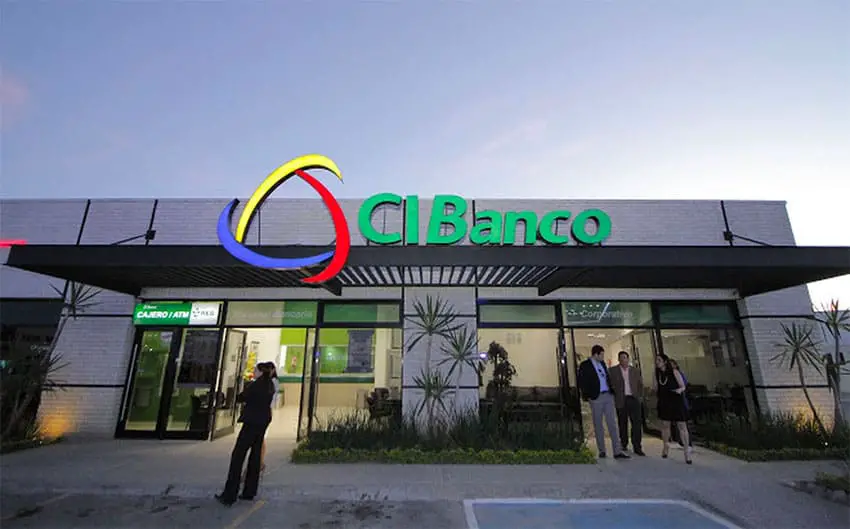
Treasury also said that CIBanco has “facilitated the procurement of precursor chemicals from China for illicit purposes.”
“For example, a CIBanco employee in 2023 knowingly facilitated the creation of an account to purportedly launder $10 million on behalf of a Gulf Cartel member,” the department said.
“From 2021 through 2024, CIBanco processed over $2.1 million in payments on behalf of Mexico-based companies to China-based companies that shipped precursor chemicals to Mexico for illicit purposes,” it added.
Intercam
FinCEN accused Intercam, another Mexico City-based bank with branches across Mexico, of providing financial services “that facilitate illicit opioid trafficking by Mexico-based cartels, including CJNG.”
“Intercam has also processed USD-denominated funds transfers that finance the procurement of precursor chemicals from China on behalf of drug trafficking organizations for illicit purposes,” Treasury said.
“For example, Intercam executives in late 2022 met directly with suspected CJNG members to discuss money laundering schemes, including transferring funds from China,” Treasury said.
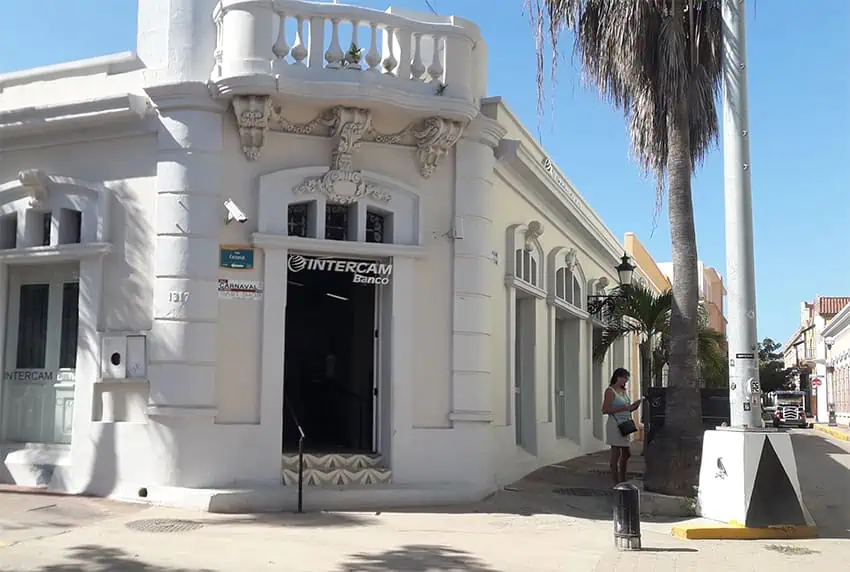
“From 2021 through 2024, a China-based company associated with an individual shipping precursor chemicals from China to Mexico for illicit purposes received over $1.5 million from Mexico-based companies through Intercam,” it said.
Vector
Vector is a brokerage controlled by businessman Alfonso Romo, who served as chief of staff for former President Andrés Manuel López Obrador between 2018 and 2020.
FinCEN accused the company of facilitating “money laundering activities of Mexico-based cartels, including the Sinaloa Cartel and Gulf Cartel.”
“Vector has also facilitated the procurement of precursor chemicals from China for illicit purposes,” Treasury said.
“For example, from 2013 through 2021, a Sinaloa Cartel money mule employed various methods to launder $2 million from the United States to Mexico through Vector,” the department said.
“Additionally, the order describes how from 2018 through 2023, Vector was found to have completed over $1 million in payments on behalf of Mexico-based companies to China-based companies known to have shipped precursor chemicals to Mexico for illicit purposes,” Treasury said.
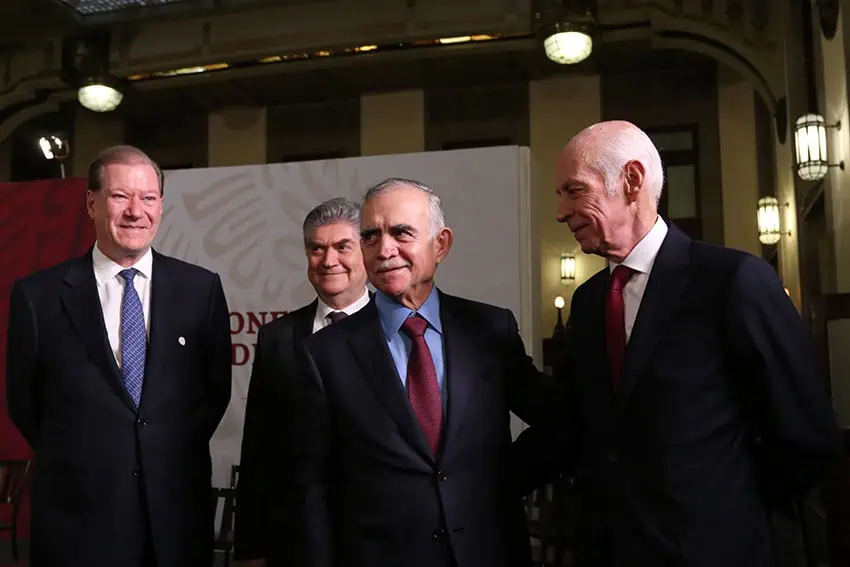
“These payments illustrate significant failings in Vector’s AML/CFT [Anti-money laundering and combating the financing of terrorism] controls,” it added.
Treasury officials said that the Sinaloa Cartel used Vector to send bribes to former Mexican security minister Genaro García Luna, who last October was sentenced to just over 38 years in prison in the U.S., almost 20 months after he was convicted of colluding with the Sinaloa Cartel.
The response from the financial institutions
All three financial institutions rejected the accusations the U.S. Treasury Department made against them.
CIBanco said in a statement that it has no connection to “activities outside the law” and reiterated its commitment to “compliance” with “all guidelines established by the relevant authorities.”
Intercam “categorically” denied “any association between this institution and any illicit activity — particularly money laundering.”
In a statement, the bank also reiterated its “firm commitment to transparency and legality.”
OFFICIAL STATEMENT pic.twitter.com/m1yw1EXQ48
— Intercam Banco (@IntercamBanco) June 25, 2025
Vector also “categorically” rejected “any accusation that compromises its institutional integrity.”
“With more than 50 years of experience, our brokerage has operated under the highest standards of regulatory compliance, internal audit and supervision by national financial authorities,” Vector said in a statement.
It said that the financial “operations” FinCEN referred to “correspond to ordinary transactions with legally established companies.”
All three financial institutions referred to a statement issued by the federal Finance Ministry in response to the accusations made by the U.S. Department of the Treasury.
The response from the Mexican government
Mexico’s Finance Ministry (SHCP) said in a statement that within the framework of its “relationship of coordination and dialogue” with the U.S. Department of the Treasury, it notified its Financial Intelligence Unit (UIF) of the “alleged irregularities” involving CIBanco, Intercam and Vector.
The SCHP said that it asked the Treasury Department to provide proof that links the financial institutions to “illicit activities” so that the evidence could be corroborated by the UIF or the National Banking and Securities Commission (CNBV).
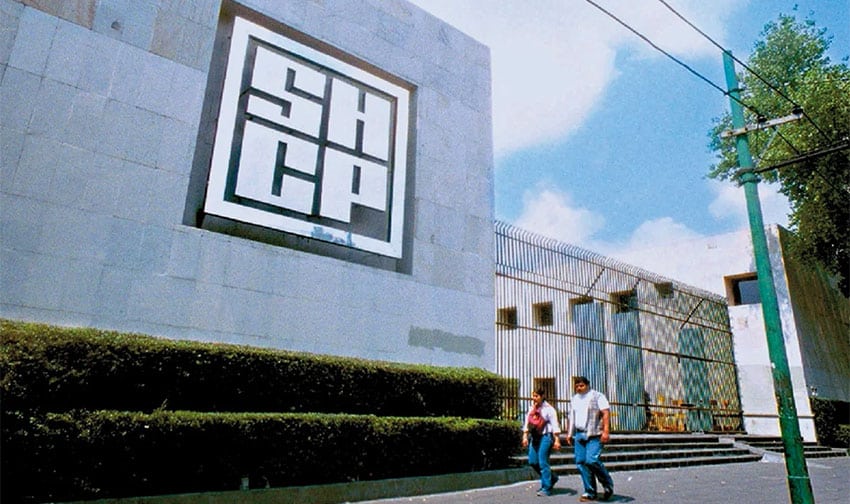
“However, no evidence was received,” the ministry said.
“The only information provided by the Department of the Treasury that can be verified by Mexico contains data on some electronic transfers made through the aforementioned financial institutions to legally established Chinese companies,” the SHCP said.
“… Such transactions are carried out by the thousands through national financial institutions. The UIF found that more than 300 Mexican companies made transactions to these Chinese companies through ten national financial institutions. This is the case because Mexico conducts thousands of ordinary operations with legally established Chinese companies, as there is annual [two-way] trade of US $139 billion,” the ministry said.
The SHCP also said that the CNBV carried out a review of CIBanco, Intercam and Vector “within the framework of national regulation.”
“The results of these investigations revealed administrative problems that have been sanctioned in accordance with current regulations, with fines and other actions that together amount to 134 million pesos [US $7.1 million],” the ministry said.
“We want to be clear: If there were conclusive information proving illicit activities by these three financial institutions, we would act with the full weight of the law; however, to date, we do not have any such information,” the SCHP said.
President Claudia Sheinbaum said on Thursday morning that “there is no proof” of money laundering in the documents published by the United States Treasury Department on Wednesday.
“So what is our position? If there is proof, action is taken. There is no impunity, it doesn’t matter who it is. But if there is no proof, no action can be taken like in any crime,” she said.
“Until now, the Treasury Department hasn’t sent any proof that indicates that there is money laundering,” Sheinbaum said.

She said there are “precedents” in the Mexico-United States relationship of the U.S. making accusations without proof, mentioning the case of former defense minister Salvador Cienfuegos. Sheinbaum asserted that when Cienfuegos was arrested in the United States in 2020, the U.S. government didn’t have “any proof” he had committed a crime.
“We act if there is proof,” she said before urging the Treasury Department to send evidence to Mexico, “if” it has any.
“If there is no proof there can’t be recognition on our part of money laundering,” she said.
“There has to be proof in order to know whether there was money laundering or not. We don’t deny it nor do we accept it,” Sheinbaum said.
How will the FinCEN orders affect the accused financial institutions and their customers?
The FinCEN orders prohibit “covered” financial institutions from “engaging in any transmittal of funds from or to” CIBanco, Intercam and Vector.
FinCEN said on Wednesday that it had “determined that a covered financial institution would be any domestic [U.S.] financial institution as defined in” Title 31 of the United States Code of Federal Regulations.
Thus banks and other financial institutions in the United will be barred from accepting monetary transfers from Mexico made via CIBanco, Intercam or Vector, and sending money to those financial institutions.
FinCEN said that its orders “become effective 21 days after … [they] are published in the Federal Register.”
“By that date, covered financial institutions should … cease any and all transmittals of funds, from or to CIBanco, Intercam, or Vector, as defined in the orders,” FinCEN said.
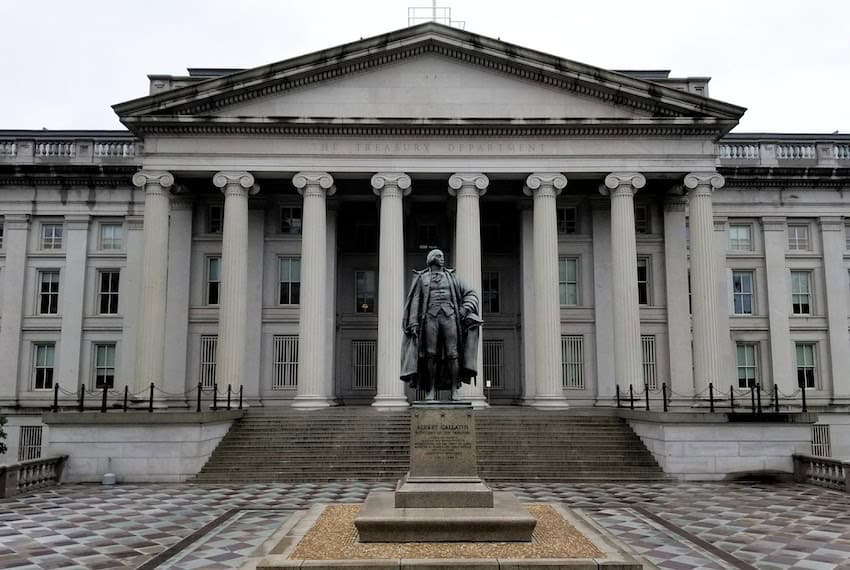
Deputy Treasury Secretary Michael Faulkender told reporters on Wednesday that the FinCEN orders would “effectively cut off” CIBanco, Intercam and Vector from doing business with financial institutions in the United States.
The Associated Press reported that Treasury officials “did not rule out the possibility of foreign branches of the banks outside of Mexico being able to continue to do business with U.S. banks.”
Citing a U.S. Treasury official, Reuters reported that “the FinCEN sanctions do not block property or cut off all global dollar-based activities of the Mexican firms as other Treasury sanctions would, but they do prohibit U.S. transactions with their locations in Mexico.”
Reuters also reported that the assets of CIBanco and Intercam make them “relatively small by global banking standards.”
Vector, however, is among the 10 largest brokerages in Mexico. The sanctions against Vector “underscores the significance of our actions,” Faulkender said.
CIBanco, Intercam and Vector all sought to reassure their customers and clients that their money is safe.
CIBanco said that “the resources of our customers are protected in accordance with the Bank Savings Protection Law.” It also said that its operations “continue with complete normality.”
Intercam also said that it “continues to operate normally and will continue supporting its clients.”
“We also remind our clients that their deposits are protected by the IPAB (Instituto para la Protección al Ahorro Bancario), and that investment instruments are safeguarded by INDEVAL (Instituto para el Depósito de Valores),” the bank said.

Vector said that “the investments of all and each one of our clients are 100% supported by the investment instruments in which they are invested, which are safeguarded in the Instituto para el Depósito de Valores.”
Michel Levien, a lawyer and anti-corruption expert, told the newspaper El Financiero that “in the medium term, clients of these [three] institutions must be very attentive to the legal procedures that are carried out in Mexico and in the United States” because “very serious sanctions” could be imposed on CIBanco, Intercam and Vector.
Those sanctions could include fines, orders to suspend operations and “even dissolution” of the financial institutions, he said.
Reaction to the US accusations and sanctions
Vanda Felbab-Brown, senior fellow at the Brookings Institution and an organized crime expert, described the FinCEN actions against the three Mexican financial institutions as “a bold move.”
“Being cut off from the US financial system is a death blow. It’s enormously impactful,” she told Reuters.
“These are hardly the biggest banks in Mexico, but they are not small entities. These are medium-level banks,” Felbab-Brown said.
While she called the FinCEN actions “a death blow” for the three financial institutions, she said they were “unlikely to “make any kind of dent in the financial flows of Mexican criminal groups.”
Luis Manuel Pérez de Acha, a Mexico City-based tax lawyer and money laundering expert, described the accusations agains CIBanco, Intercam and Vector as a “bombshell.”
“The entire financial system passes through the United States, so they are practically left without operations,” he told Reuters.
